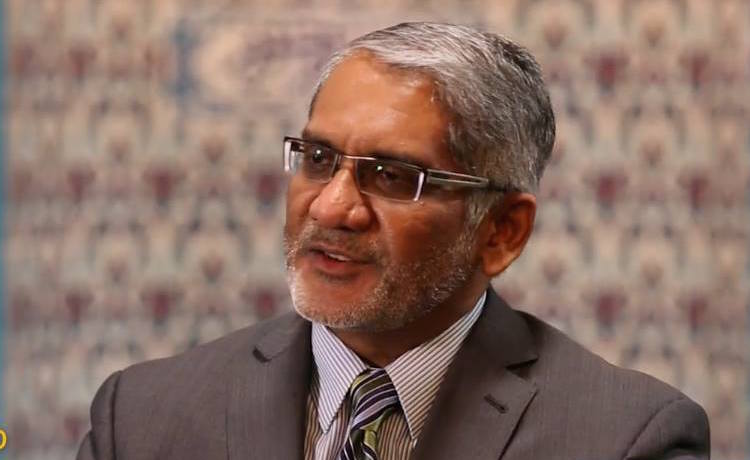- Home
- About Us
- The Team / Contact Us
- Books and Resources
- Privacy Policy
- Nonprofit Employer of Choice Award


 Muslim relief organizations are in overdrive, aggressively marketing to the Canadian Muslim community, and a new form of fundraising practice is cropping up among the larger charities— voluntourism, which encourages people to travel and make a positive impact in the world.
Muslim relief organizations are in overdrive, aggressively marketing to the Canadian Muslim community, and a new form of fundraising practice is cropping up among the larger charities— voluntourism, which encourages people to travel and make a positive impact in the world.
In 2021, just five of the larger relief agencies collected $112 million (Source: Charity Intelligence), mostly from the Muslim community, for relief projects overseas.
Over the past few years, a trend of voluntourism has become popular, partly through programs by well-established charities such as UNICEF, Save the Children, CARE International and World Vision. At the same time, Muslim relief agencies have also been unveiling their voluntourism programs with promises that volunteers will “…have an adventure of a lifetime while serving food to disadvantaged Muslims and make a meaningful impact on the lives of children and orphans.”
Such appeals tend to attract younger people and student volunteers who can best be described as amateur humanitarian workers who will bring few relevant skills to the volunteer sites and will be engaged in basic work such as handing out care packages and bringing “smiles to kids” who are perceived as alone and in need of social support.
There are ethical considerations that need to be taken into account when engaging in voluntourism and questions need to be raised about this emerging practice among Muslim charities.
1. Superficial Engagement
The design of voluntourism programs leads to superficial engagement of volunteers and does not raise awareness of the root causes of the suffering. This makes it hard for the volunteers to think about, or do anything about, the structural issues that create humanitarian crises in the first place.
2. Cultural Superiority
Overseas relief activities should ensure that the volunteer work is done in a way that is respectful and not condescending of the local community and their culture. For example, being sensitive to local customs, traditions, and values, and not imposing one's own beliefs or practices on the community being served. It also means ensuring that the volunteer work is aligned with the needs and priorities of the local community, rather than being driven by the desires of the relief agency to raise funds.
3. Sustainability Gap
Another ethical consideration is ensuring that the volunteer work is done in a way that is sustainable and has a lasting impact. It is critical to work with local organizations and stakeholders to develop long-term solutions to issues, rather than simply providing short-term relief and “feel good work” for volunteers. Muslim charities should ensure that the volunteer work does not create a dependence on foreign aid or volunteers, which can undermine the local community's ability to solve their own problems.
4. Stereotyping Risks
While the adventure-seeking Muslim youth in voluntourism programs are aware of the risks involved in the trip and oftentimes sign waivers, not much consideration is given by charities to assess whether their volunteer work puts the local community at risk. This means ensuring that volunteers are properly trained and screened, particularly when working with vulnerable populations such as children. It also means being aware of the potential for unintentional harm, such as perpetuating harmful stereotypes or reinforcing power imbalances—bringing the volunteers’ Western and first-world sensibilities to third world countries.
5. Fundraising Push
Experts studying voluntourism believe “long-term commitment” is key. Doctors, engineers, computer scientists and particular types of educators have important skills and could make more enduring contributions. Doctors, for example, could train medical personnel on new procedures to use once the volunteer leaves.
Despite its original purpose, voluntourism promoted by Muslim relief organizations has transformed into a means of fundraising. Charities utilize persuasive language and focus on privileged individuals who have the financial capacity to support the fundraising objectives of the organization. Often, parents announce on social media that they will cover the travel expenses and encourage their network and community to contribute towards the charity's cause. Moreover, youth participants are targeted and exploited due to their competitive nature and are requested to share their voluntourism activities on social media.
The fundraising aspect of voluntourism promoted by these charities raises concerns about whether its purpose is primarily "programming" or simply a fundraising tactic that exploits vulnerable communities overseas. It appears to be the latter, as charities are aware that youth and privileged parents view overseas relief work as an appealing addition to their resumes when applying to medical school or other professional programs.
In Victoria Louise Smith and Xavier Font's research on volunteer tourism, it was found that the overwhelming majority of voluntourism is not sustainable, responsible, or ethical. Their study suggests that voluntourism often prioritizes Western desires over local needs, and can even lead to exploitation for the benefit of external parties.
In exploring the language used by charities, they noted that “volunteers felt impressed by the density of buzzwords used in the marketing materials, but there was little evidence of these volunteers searching for evidence of how the volunteer project went about achieving their claims.”
By approaching voluntourism in an ethical way, volunteers can make a positive impact while also learning from, and respecting, the local culture and community. For the short term, volunteers should see their presence as a cultural exchange rather than humanitarian relief.
Muneeb Nasir is the Chair of the Olive Tree Foundation, a Canadian public foundation (Waqf), the Executive Director of the Cordoba Centre for Civic Engagement and Leadership, and the Managing Editor of the online Canadian Muslim Journal, IQRA.ca.
Irshad Osman is an Imam by training and a fundraising consultant by profession who holds a Certified Fundraising Executive (CFRE) designation. He has worked with local and international charities raising funds to support human development and disaster relief work.